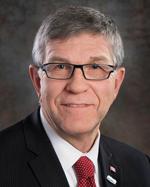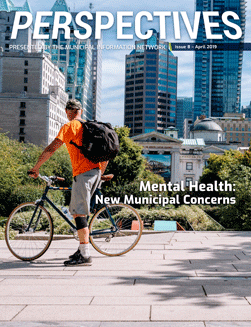I thought I knew a lot about hockey, until I started coaching it.
I felt I had a solid grasp on hockey player trades after observing the National Hockey League process for years until I became a general manager in junior hockey and had to make deals myself.
I considered myself well versed in regional municipal governance after several years as the Capital Region Board Chair in Alberta, until I taught regional government at the University of Alberta.
Mayors, reeves and councillors across Canada think they know a lot about municipal governance, when actually many know very little.
It is, of course, natural for any newly elected official in Canada to feel comfortable quickly adapting to their role as a mayor, reeve or councillor once elected. Many politicians come from a life of community service or leadership roles. Once elected, officials settle in quickly to a new role on their Councils. Newly elected officials who are thrust into the demands of office learn the ropes from their colleagues or administrative staff, and move quickly into decision making based on the narrow orientation that each council member receives. This is where the shortcomings begin.
What’s missing with this fast-tracked elected official immersive learning process is diversity. Those providing the orientation can’t match the diversity of ideas, perspectives and lessons learned from years of practice in communities across Canada.
A significant aspect missing in this currently narrow approach for elected officials’ orientation is that most of us believe that our orientation, procedures, processes, systems and culture that we are indoctrinated in give us the best approaches to governance in our province or perhaps even in Canada. Elected officials generally discount the other ideas and ways of doing things from other jurisdictions.
There is of course a lot to be gained from the knowledge shared at municipal conventions or gained by attending numerous intermunicipal meetings or conventions. Equally as valuable, governance learning for a newly elected official would be to become immersed in the processes used by another community of similar size (or type), even for a short period of time.
Imagine the learning that would occur if a newly elected councillor from Mississauga received some governance orientation in the City of Toronto. Imagine what would occur if the mayor of Halifax were to be able to spend a week at Vancouver City Hall, or if a county councillor in southern Manitoba spent time learning in a county in northern Manitoba. Many councillors actually choose not to, or simply can’t, attend municipal conventions or meetings where other elected officials are present, further short-changing their access to diversity of knowledge.
Over the past year, I had the opportunity to lead the development of 6 different collaboration agreements in Alberta. Called Intermunicipal Collaboration Frameworks (ICF’s), these agreements are a new requirement by the province and must include an accord for shared services between adjacent municipalities. Similarly in 2018, I completed more than 20 performance appraisals for various municipal and not for profit executives across Alberta. As one can imagine, what I’ve learned about different corporate approaches has been significant.
Even though I served on council for 13 years in my own community of St. Albert, I now realize just how little cross training existed for me and my fellow council members. Many ideas and practices being employed in other communities are far superior to the approaches that I became accustomed to on the councils I served on. In fact, most elected officials that I have interacted with over the years brag about how well they do their budgets, run their council meetings, or are overly proud of how they conduct public hearings. Indeed, there may be better approaches, but little time is set aside to learn new practices that occur elsewhere. On some local councils and administrations there can also be resistance to make changes to familiar protocols that officials become accustomed to or get locked into.
How and what we learn from other organizations and other locally elected officials in Canada is woefully inadequate. The transfer of knowledge, diversity of approaches, training, personal development and best practices could be enhanced through the immersion of an elected official in another municipality, if only for a day. The stakes are too high to ignore it.








